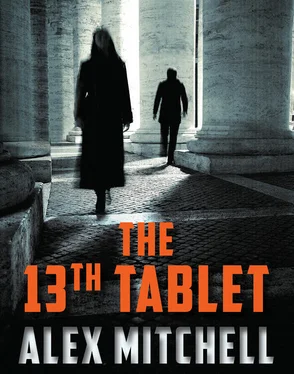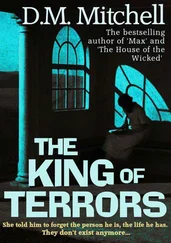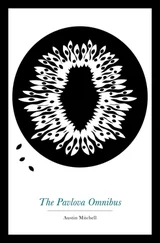Somehow Mina had so far managed to avoid being in the midst of terrorist attacks or full-blown battles. But for how long? While she had been away visiting her parents in New York for a month, Mosul had seen many gunfights and widespread destruction, and US intelligence believed there were worse times ahead. Everyone had urged her to delay her return to Iraq. But she had had her way, and here she was.
Hassan parked outside her block of flats. He helped her carry her suitcases up to the second floor and said he would return in an hour and take her to the Cuneiform Studies department.
Apart from the dust that had accumulated, everything was as she had left it a month before. There were piles of books in various parts of the flat, as the shelves could not handle any more volumes. She felt at home with the golden light streaming through the shutters and the unmistakable smell of old leather and wood. She dropped her suitcase and slumped on the couch, knowing that she’d have to get up soon or she would fall asleep. She had been invited for dinner by Professor Almeini, her departmental mentor. After a few moments spent staring at the ceiling, she mustered her strength and walked into the bathroom.
December 1st, 2004
Mina threw a quick glance at her reflection in the side window to check her headscarf was properly adjusted before entering the department. Although she’d spent over a year in Mosul and had long forgotten the skirts and tight tops she used to wear in New York, she constantly felt self-conscious. After all, she was the only female lecturer in the department of Cuneiform Studies and had no female students. To add to her unease, Hassan had not accompanied her upstairs, saying that he had ‘things to do’. Now that she thought about it, during the drive from her flat, Hassan had been evasive every time she brought up his studies. Mina realised that she was standing in the department’s main corridor, lost in her thoughts, and quickly walked on through to her office.
An overweight and sour-looking man who was seated in the corridor, probably waiting to see one of the professors, threw her a disapproving glance. However demurely dressed, Mina guessed she was too voluptuous for this man’s conservative ideas on how a woman should be attired. She was about to tell him what she thought about his unwelcome gaze, when Professor Almeini appeared.
The elderly scholar took her hands in his, ‘Dear Mina. How are you?’
‘I’m fine,’ she answered, feeling suddenly at ease in his presence. He was a short, thin man who exuded confidence and affability. Professor Almeini had a wiry strength, which had kept him going well past retirement age. University officials needed him to keep the department from falling apart, and he was rather reluctant to relinquish his office.
‘Please wait for me in my office. I’ll be just a minute,’ he said in his calm voice.
Professor Almeini’s office was a mirror image of his simplicity and scholarly nature: oak shelves, with row upon row of neatly arranged and well-read books, dappled light bathing his desk and an ancient rug underfoot. Although many colleagues had described to Mina how well-kept the University of Mosul was compared to a few years back, she only half believed their stories. The set-up was still quite basic in her eyes. Moreover, after the 2003 lootings, most lecturers had taken the library and departmental books home for safe-keeping. She was delighted to see that Professor Almeini had returned all his books to the office; it was a sign that things were somehow on the mend. She sat down in a chair at the far end of the office.
The professor’s shiny Russian samovar was on its stand, the fire in its pipe smouldering. She smiled, thinking of the ‘thousand and one nights’ tales told by students about its origin. Her favourite story centred on the professor’s imaginary involvement with the mujahideen in Afghanistan, she had overheard a young student in the university cafeteria telling his friends in hushed tones, ‘he raided a Soviet stronghold and brought back the samovar. I swear, it belonged to a Russian officer.’ Knowing the professor, Mina thought it more likely he had bought it in a bazaar while searching for some rare books. She heard his firm step outside the office. The professor shut the door and walked towards his favourite assistant.
‘So, Mina, how was your trip to America?’ he asked as he sat down opposite her.
‘Refreshing. I attended a few seminars, I saw my parents… no bomb threats, no missing students or colleagues, you know, same old, same old.’
‘Now, now. Don’t be cynical, it’s unbecoming. I remember when you first arrived. You were so starry-eyed, let’s say.’
‘I’m sorry Professor. I didn’t mean any disrespect.’
‘I could be mistaken, but you seem almost disappointed that work can continue at the university in such appalling conditions.’
‘Yes and no. We teach students how to read ancient cuneiform, to understand their history but the recent past has caught up with us and I feel that there’s little hope for their future. How can you be so peaceful when the world’s tearing itself apart?’ Mina asked earnestly.
‘When you’ve known as many difficult times as I have my dear, you won’t speak lightly of the work we do,’ he said. ‘You are in Mosul, ancient Nineveh, the city where the library of King Sennacherib was found.’
‘I know Pr…’
‘You do and you don’t,’ he said, cutting her short. ‘Do I need to remind you of the importance of our mission here? I have a duty to safeguard what is left of the earliest writings in the history of the world.’ Then, with much kindness in his eyes, he added ‘Ah, Mina, with the meagre financial means I have at my disposal and with the war, all I can do is use my knowledge to further scholarship here and now. Look at all the academics who fled Baghdad and whom we’ve had to accommodate here in Mosul. They left everything behind.’
He seemed lost in his thoughts for a moment but Mina knew he was thinking the same thing as her; ‘God knows when they’ll be able to return.’
The professor collected himself and said, ‘With last month’s escalation in violence, I have no idea what will happen in the coming months. But as for you, you came here to help and you’ve achieved much Mina.’
‘I don’t feel I have, Professor. I promised myself I’d regain some of the stolen tablets, and return them to the museum, but I’ve only authenticated a few. Of all the shady people who’ve come my way, not one of their tablets came from the looted museums. They were either fakes that they tried to fob me off with, or artefacts looted from other sites.’
He looked at Mina’s earnest face, amused by her youthful disappointment.
‘Don’t be so hard on yourself Mina. You’ve been a wonderful teacher for our students. You’ve done so much for this department. If anyone should be disillusioned it’s me, with Hassan. He was such a good student.’
‘What do you mean was ?’ Mina was surprised, ‘He just drove me here. What’s he done?’
‘That’s the problem. He hasn’t done anything; he dropped out. Learned just enough to start working for those shady art dealers you were referring to.’
Mina was disappointed. She now understood why the boy had been so cagey when she’d asked him about his studies. ‘I’m so sorry Professor. It must be very disappointing,’ she said.
‘Yes. But let’s talk about other things,’ he answered with a twinkle in his eye, ‘I owe you a welcome dinner, don’t I? My wife’s prepared a delicious meal for your arrival. Let’s go.’
Hassan was sipping tea in his favourite haunt. The establishment was renowned for surviving two Gulf wars and serving Mosul’s finest coffee. Hassan didn’t care much about the coffee but loved the cafe’s atmosphere. He often conducted his business in the small backroom with its medieval windows framed by old marble slabs, which had probably been looted from some long-forgotten Roman building.
Читать дальше












